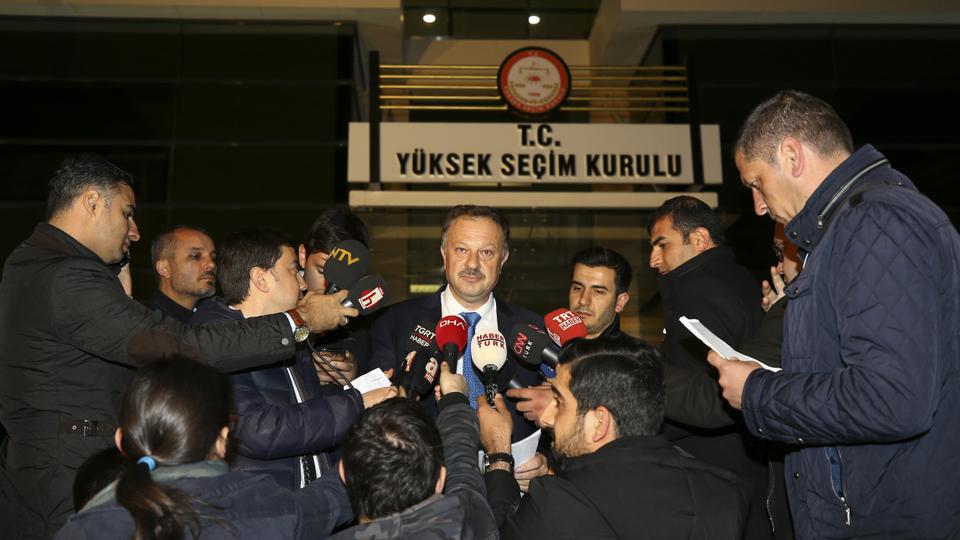
The streets of Istanbul, largely empty in the wake of several terrorist attacks and the failed coup of 2016, now throng with life again, Turkish Nobel Laureate Orhan Pamuk said in The Telegraph.
“In spite of the political situation, the city has managed to rediscover its colours and crowds,” Pamuk wrote in the U.K. newspaper on Monday . “The Cihangir-Çukurcuma neighbourhoods where I have lived for the past 20 years are gradually coming to life. I’m pleased with these developments; it is gratifying to find that even in these dark days people from all over the world are still interested in you.”
In the 1950s, no tourist would ever visit these neighborhoods, which were predominantly Greek until the city’s Greeks were driven out in the 1960s. Back then, a local who wanted meze or a book would have to walk up to Taksim or Istiklal, recalled Pamuk.
“Today, these same streets are full of meze bars, bookshops, antiques stores, art galleries, coffee shops, design stores, junk dealers, and a proliferation of restaurants and tourists,” he wrote.
He grew up in Nişantaşı, a wealthy district near Taksim, which he hardly visits since moving to Cihangir in 1994. “When I moved there in the 90's, you could still see transvestites and sex workers out in the afternoons, doing their grocery shopping,” said Pamuk. “Then, at the start of the 2000s, the character of Cihangir was suddenly transformed.”
Publishers previously based in the old city centre, on the far side of the Golden Horn, moved to Beyoğlu, according to Pamuk. Then the advertising studios, wine shops, second-hand bookstores and cafés started appearing.
Western businesspeople, diplomats, and foreign correspondents had already begun to move to the neighbourhood, renting top-floor flats with extraordinary views of Topkapı Palace, the Hagia Sophia, the Blue Mosque, and the Bosporus.
“At the same time a section of Istanbul’s wealthy classes realised that nowhere else would they find a more magnificent vista of the old city and of the mouth of the Bosporus, so they too moved to Cihangir,” said Pamuk.
“All this fostered the development of a relatively tolerant culture in Cihangir, diverging from the more conservative norm, in which you could have a drink outside, and buy newspapers from all over the world. For the first time in the city’s history, in keeping with this changing culture, ‘green’ restaurants appeared, fish restaurants weren’t just confined to the waterfront, cafés began serving brunch on Sundays, bars came in different types, and restaurants served modernised versions of traditional dishes, accompanying them with alcohol,” he explained.
Tiny fish restaurants popped up in narrow alleys, serving four or five tables at most. Pamuk could call in the evening and they would send over their catch of the day, grilled and with a salad on the side, he said.
“But what makes Cihangir so fascinating to me, and such a paradise for endless walks and window shopping, is the rapid transformation and expansion that Cukurcuma’s small, shabby, dirty flea market experienced in the early 2000s,” wrote Pamuk. Shops that used to sell old mattresses, broken chairs, and used jeans now offer vintage clothing and humble antiques, with an enormous selection of old photographs and ephemera.
Cihangir is situated halfway down an avenue that was meant to link Taksim to a ferry pier on the Golden Horn, but that avenue was never built, so Cihangir became a quiet place, insulated from the din of the city.
Pamuk spent a lot of time walking around the area while researching his books, and heard that silence. He recalls one spot, at the top of a stairway on a slope lined with dozing stray cats, that offered an exceptional view over the Bosporus, the Maiden’s Tower, and the Uskudar neighbourhood on the city’s Asian side.
“I would sit at a table under one of the tall trees near the Firuz Ağa Mosque, outside a café or a flatbread shop, and quietly read my newspaper and write in my notebook,” said Pamuk. “It cheered me to see so many familiar faces around me from literary, artistic, and political circles, and to know that most of them were freedom-loving people critical of the government and sympathetic to Europe. It made me feel proud of being from Cihangir.”



I have long felt a special connection with Herbal Medicine. For one thing is natural, Charlie we went to the same small college in Southern California — Claremont Men’s College — though he dropped out and ultimately enrolled at the Julliard School of the Performing Arts in New York. Had he stayed at Claremont, he would have been a senior the year I started there; I have often kidded that I was the reason he left when he finds out I had herpes. So my life have been lonely like hell all day I couldn't bear the outbreak pain, Tasha then introduce me to Dr Itua who use his herbal medicine to cure her two weeks of drinking it. I place an order form him and he delivers to my post office then I picked it up and used for two weeks all my sore was healed completely no more outbreak I'm honestly telling you this man is a great man, I trust him and his herbal medicine so much I'm sharing this to show my appreciation also to let sick people know there is hope with Dr Itua Herbal Made Medicine.Dr Itua Contact Email.drituaherbalcenter@gmail.com,Whatsapp.+2348149277967
ReplyDeleteHe cures.
Herpes,
STROKE.
Hepatitis
H.P.V TYPE 1 TYPE 2 TYPE 3 AND TYPE 4. TYPE 5.
HIV
SYPHILIS.
Liver/Kidney Inflammatory
Epilepsy